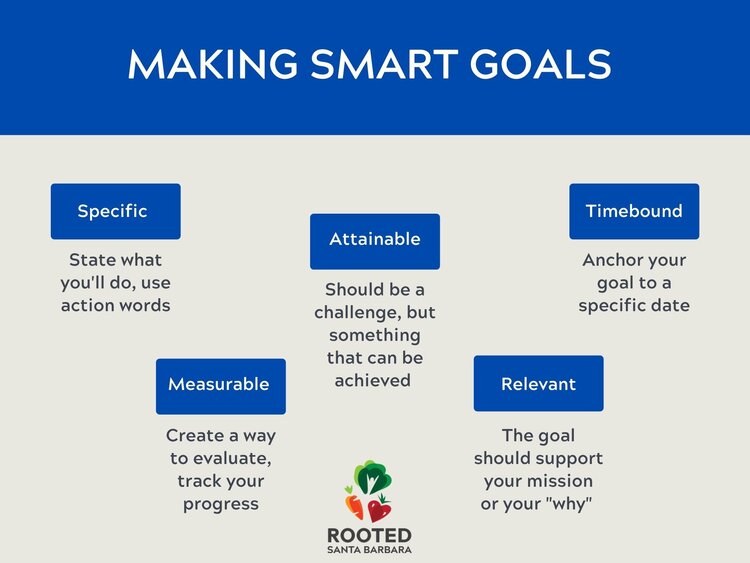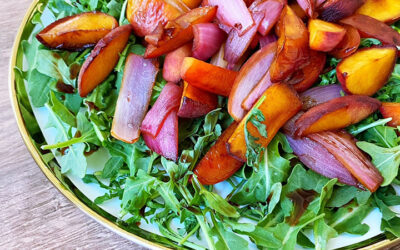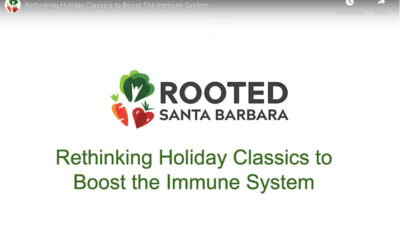 Starting a new year gives us all the feelings of renewal and a clean slate, prompting resolutions, intention setting, and pledges to healthier habits. But many people have a hard time sticking to their new healthy or productive routines, even in the first weeks. What is it about resolutions that don’t seem to stick?
Starting a new year gives us all the feelings of renewal and a clean slate, prompting resolutions, intention setting, and pledges to healthier habits. But many people have a hard time sticking to their new healthy or productive routines, even in the first weeks. What is it about resolutions that don’t seem to stick?
Goals vs. Resolutions
There’s something about a resolution that feels right, like we’re drawing a line in the sand between ourselves and unwanted habits. After all, the definition of resolution is “a firm decision to do or not to do something.” But we know that making habits stick has more to do with planning and progress than resolve and perfection.
In recent years, my own new year plans were to read more. That’s it, just read more. How vague! I would read a fair amount, but I’m not sure I could ever say I read more than the year prior. For 2020, I changed my resolution to read into a goal to read 38 books, one for every year of my age. I’m proud to report, mission accomplished!
But, what changed?
Making SMART Goals
I first learned about SMART goals in a marketing class. It made sense for dealing with data and budgets, but I didn’t really think to apply this method of goal setting to my personal life at the time. Now years later, I see the value in following this method of goal setting in any arena of your life.
There are five attributes that make a goal SMART:
- Specific – using action words, state exactly what you plan to achieve.
- Measurable – plan how you’ll evaluate based on data, progress should be tracked.
- Attainable – set a challenge, but make sure it’s within reach.
- Relevant – ensure your goal is aligned with your why.
- Time-Bound – know how long it should take you to achieve your goal.
Having specific goals instead of sweeping declarations helps to guide you on your journey. Making a plan to make these changes into habits sets the stage for success. For me, making reading into a SMART goal was much more effective than a sweeping resolution to read more.
Creating a Plan
Wouldn’t it be great to wake up on January 1st every year and all your desired new habits were a done deal? Since it can’t be that way, knowing a few things can help us prepare for rolling out a new goal.
Even though it was once thought that it only takes 21 days to forge good habits, recent science suggests that habits take an average of 66 days to take hold. So taking smaller steps towards your goal is a much better way to create momentum.
Trying to read 38 books? Aim to complete one book every 9 days.
Trying to be more plant-forward? Maybe your first step is to have leafy greens or broccoli with every meal for 66 days, or even picking one animal-based food to experiment with plant-based swaps once a week.
Setting Yourself Up for Success
Whether you’re hoping to improve your fitness, overall health, or even your reading list – you’ll want to make sure you create an environment around you that supports your SMART goals and doesn’t add unnecessary pressure to decisions. Here are a few considerations that will help you set yourself up for success:
- Define the reason for your goal: Our “whys” are what drive us. Do you want to get fit to run a marathon or play with your grandkids, eat healthier to prevent disease or feel better, read more to expand your knowledge or to stretch your imagination?
- Make environmental changes: Make space for exercise in your home, avoid bringing unhealthy snacks into the house and set out a bowl of fruit, set your favorite chair up in the best light for reading.
- Celebrate the small wins along the way: With our fast-paced lives, we tend to complete a task and move right to the next one. With anything you do, take a moment to celebrate each victory along the way, no matter how small.
Healthier Choices in 2021
Perhaps this year more than ever, folks are concerned about, and aware of, their own health and well-being. 2020 tested us in ways we never imagined, so it’s only natural that we’re looking to make positive changes and take measures to protect our bodies and minds.
If a healthier 2021 is part of your hopes for a bright, new year, being more plant-forward is a great start to meet your “why.” After all, preventative health through a whole food, plant-based lifestyle is backed by strong evidence.
Here are some ways to make being more plant-forward a SMART goal and make 2021 a healthy year:
- Start with your “why” to drive what specific and measurable goals you’ll make.
- Break it down into smaller goals, like adding leafy greens to each meal or eating six colors of the rainbow each day.
- Enlist tools to help you get started
- If you’re looking for help with your pantry, our article on plant-based staples might come in handy.
- Try a whole-food plant-based program like 21 Day Vegan Kickstart.
- Follow Rooted on Facebook or Instagram to tune in to plant-forward community support!
- Give yourself every opportunity to succeed by stocking your pantry with healthy whole plant-foods, and avoid keeping highly processed food in your home.
And as always, be kind to yourself! Big changes are best met with an open mind and open heart. Think progress over perfection, and celebrate your good days.
A Happy and Healthy New Year Ahead
No matter what goals you’re setting in 2021, on behalf of the whole Rooted Team, I hope you have a happy and healthy year ahead. If being more plant-forward is part of your goal, reach out to us and let us know what’s working for you and where you could use some help.
Samantha Haentjens is a long-time plant-enthusiast working with Rooted Santa Barbara as a Steering Committee member and marketing consultant.
Caramelized Onions and Stone Fruit
Caramelized Onions and Stone Fruit This recipe is always a hit. And it's also a big surprise for kids. They often...
Learn Virtually: Rethinking Holiday Classics To Boost The Immune System
Emma Malina is a plant-based nutrition educator and food-skills instructor based in Santa Barbara, CA who empowers...
Research: Plant-Based Diets And Breast Cancer
A new study has found that diets rich in fruits, vegetables, and other healthy plant-based foods, like whole grains,...
Supporting Our Work - We’re currently an all-volunteer organization and we see incredible room and need to grow over the coming year. We understand that this time has enormous challenges for everyone, so while we’ll be seeking support to help roll our vision forward, we’re also thinking creatively to keep our costs low to efficiently build resources and deliver programming at low to no cost to our community. If you’d like to support our work, we hope you’ll consider making a donation to one of our giving programs through our community partner, the Santa Barbara Foundation!




